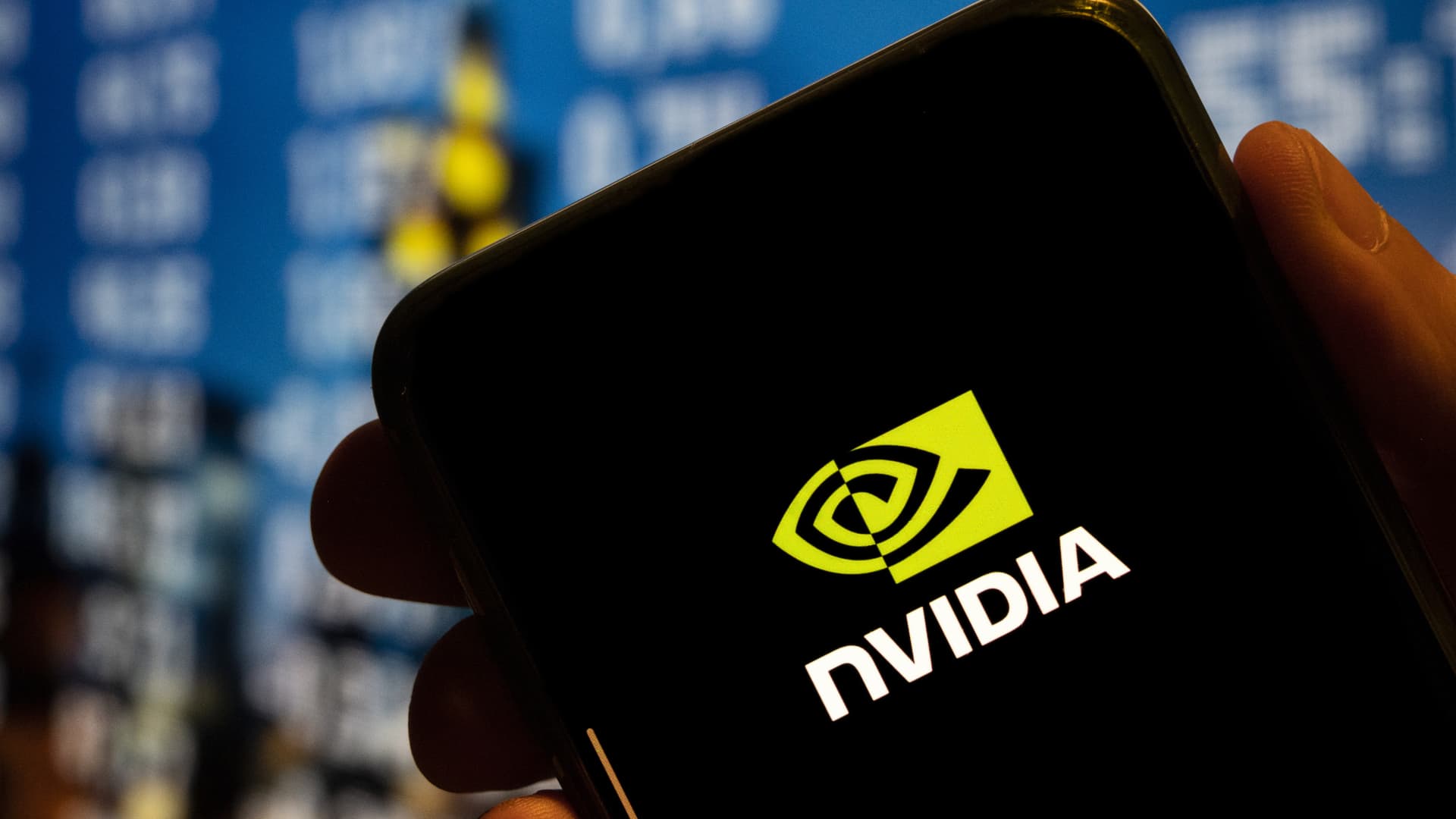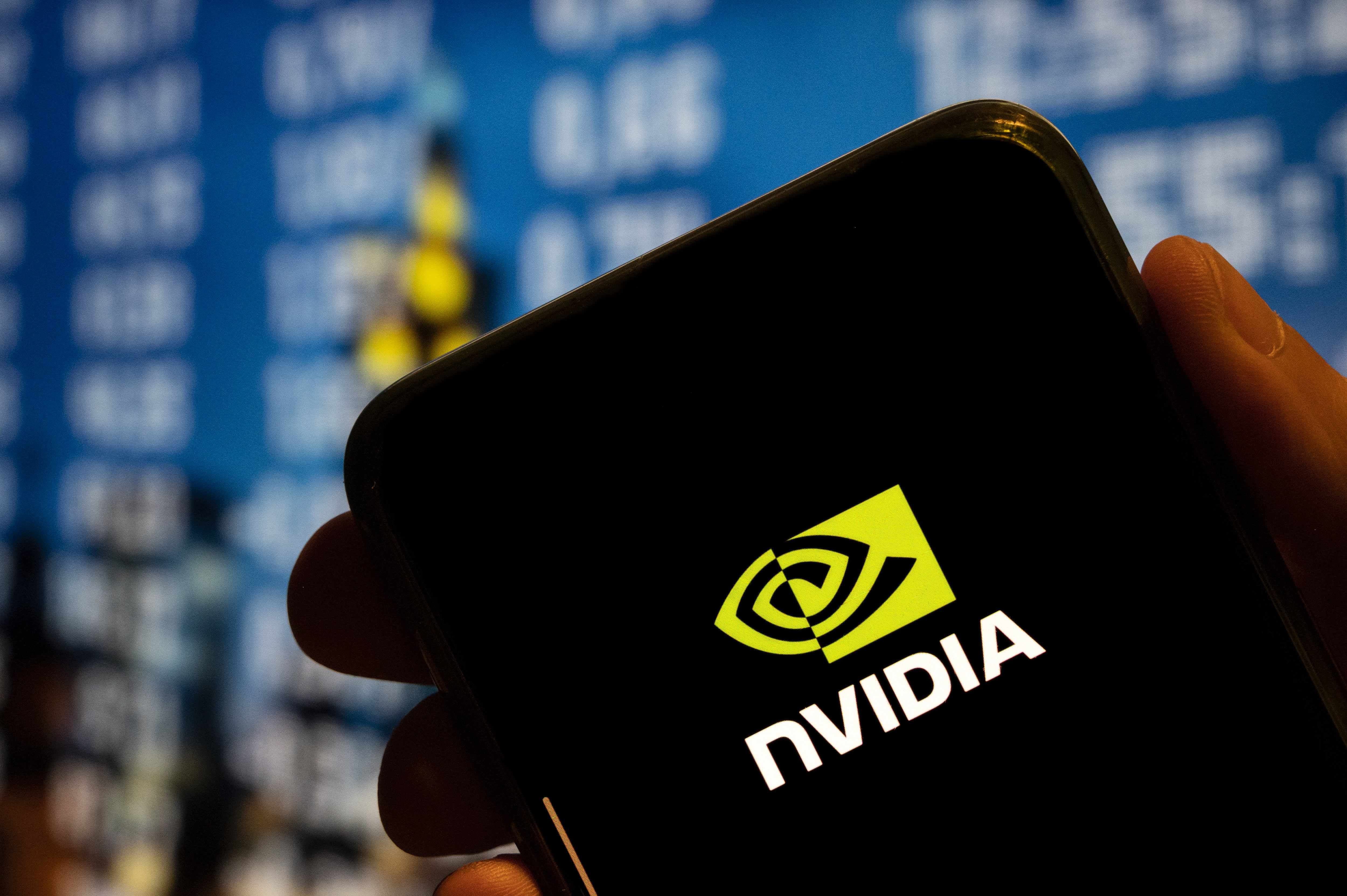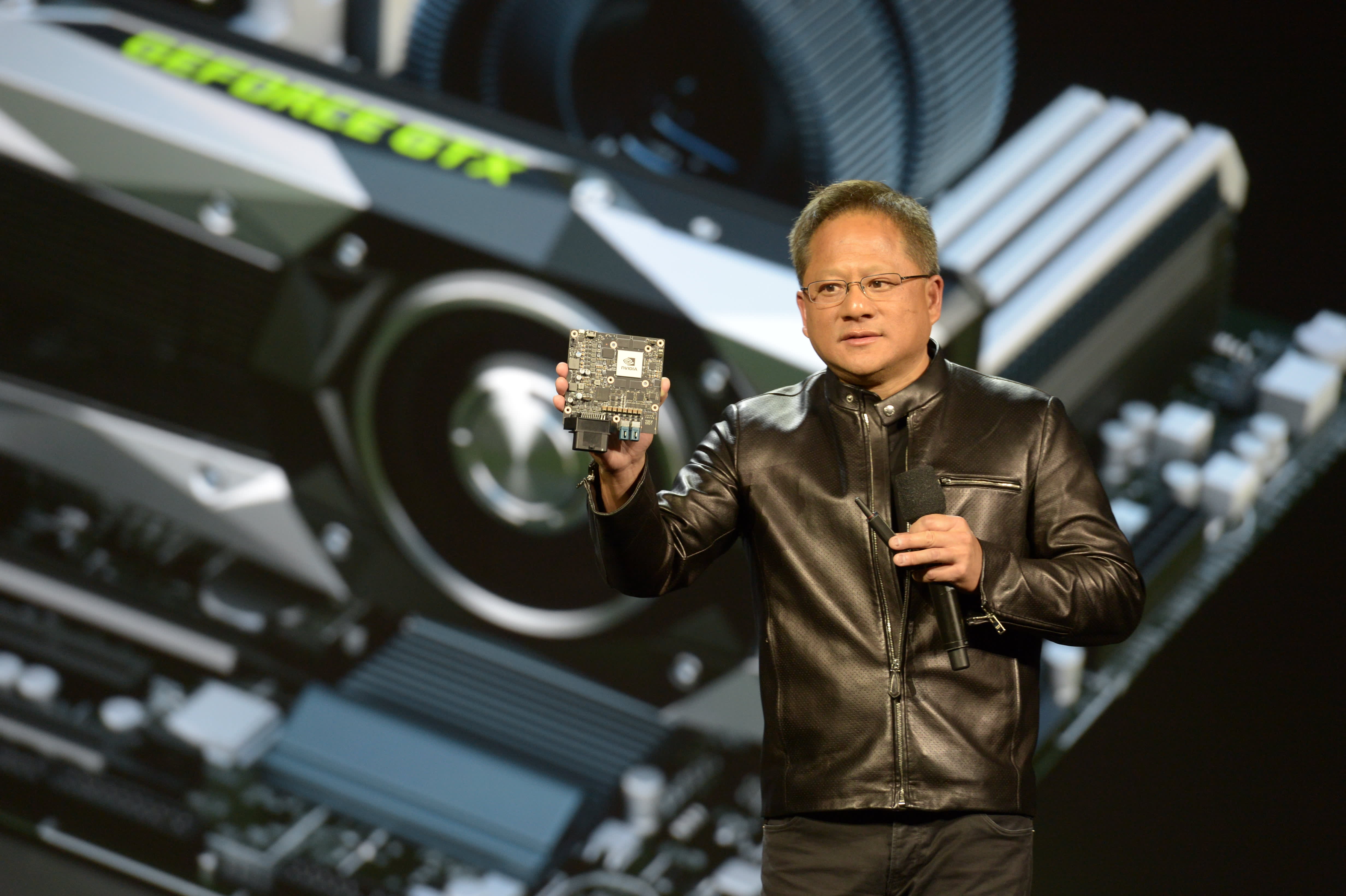BEIJING — U.S. restrictions on Nvidia chip sales to China won’t affect Chinese electric car companies, as they’re using auto systems that don’t include the sanctioned products.
Chipmaker Nvidia’s shares have plunged around 13% this week after the company disclosed new U.S. restrictions on its exports to China, affecting about $400 million in potential sales in the current quarter.
related investing news
In China, the Nvidia Drive Orin chip has become a core part of electric automakers’ assisted driving tech. These semi-autonomous driving systems are an important selling point for the companies in what has become a fiercely competitive market in China. Some automakers are also using Nvidia’s Xavier chip. Automotive is a relatively small but fast-growing part of Nvidia’s business.
However, the new U.S. restrictions target Nvidia’s A100 and H100 products — and these chips’ sales are part of the company’s far larger data center business. The products are graphics processors that can be used for artificial intelligence.
“There shouldn’t be any restrictions on Xavier and Orin, and Xpeng, Nio and others would continue to ship with those chips,” said Bevin Jacob, partner at Shanghai-based investment and consulting firm Automobility.
Jacob, however, did warn that there could be “close scrutiny” in the future on U.S. firms shipping chips relating to artificial intelligence and autonomous driving to China.
Xpeng declined to comment. Nio, Li Auto, Huawei and Jidu — a new electric vehicle brand backed by Baidu and Geely — did not respond to requests for comment.
The new U.S. rules are designed to reduce the risk of supporting the Chinese military, according to the U.S. government, Nvidia said in its filing with the Securities and Exchange Commission on Wednesday. But it’s unclear what prompted this specific policy move or what could drive future ones.
In another positive sign for the chipmaker, the U.S. will allow Nvidia to continue developing its H100 artificial intelligence chip in China, the company said Thursday.
“The U.S. government has authorized exports, reexports, and in-country transfers needed to continue NVIDIA Corporation’s, or the Company’s, development of H100 integrated circuits,” Nvidia said in a filing Thursday.
The company said second-quarter revenue for its automotive business was $220 million, up 45% from a year earlier.
“Our automotive revenue is inflecting, and we expect it to be our next billion-dollar business,” Nvidia CEO Jensen Huang said in an earnings call in late August, according to a StreetAccount transcript.
WeRide, an autonomous driving technology start-up, said in a statement that “there is no immediate impact from the ban.”
“We believe both the supply and demand side in the industry will work closely together to handle the constantly changing business environment to safeguard the continuous development of technology,” the company said in a statement to CNBC.
Pony.ai, another autonomous driving start-up, said it is not affected, as did automaker Geely.
— CNBC’s Kif Leswing contributed to this report.




The medial deltoids give your shoulders their width and,
as such, must be a training precedence for most people.
Lateral elevate variations are the one method to isolate this deltoid
head. The cable machine is my go-to for workout routines just like the lateral increase
and upright rows. If you get pleasure from or don’t mind the exercises on this shoulder workout,
I recommend you stick to them, as they will effectively work all components of your shoulder muscle tissue.
By implementing progressive overload in your shoulder exercises,
you’ll guarantee steady muscle progress and power positive aspects.
Each section could be more or less isolated using different exercises focusing
on each one, and the best shoulder workouts work all three components of your deltoid equally.
Resistance training is a crucial side of your journey to building muscle.
Beneath we cowl the approach, mechanics, and advantages of
crucial shoulder raises. Dumbbells enable for a larger vary
of movement and can help appropriate muscle imbalances.
In contrast, barbells permit you to carry heavier weights,
which is useful for constructing energy. A balanced shoulder training program would
ideally incorporate each. I do want you to begin with mild weights for your overhead urgent exercises.
This routine must be done at a quick pace, with not
more than 30 seconds of rest between units. The complete routine should take you
not more than a half-hour to carry out, and you must do it
twice per week. Doing this exercise firstly of your
shoulder coaching will let you do higher throughout overhead presses
and lateral raises.
If you start to really feel discomfort in your shoulder, try
to go to a high-incline bench as a substitute.
Sitting upright would possibly hinder someone’s shoulder joint and might be better executed with a slight incline.
To fatigue the anterior deltoid even more, make certain to pause at the high briefly.
Readers with accidents like rotator cuff tears or impingement syndrome ought to consequently avoid doing Arnold presses
because the exercise may worsen or aggravate the condition. While you can’t see your rotator cuff,
this group of 4 small muscular tissues works alongside your deltoids and all of your
different higher body muscle tissue. The rotator cuff aids in controlling the actions
of your shoulder joint and infrequently acts as a stabilizer.
The 4 rotator cuff muscles are the supraspinatus, infraspinatus,
teres minor, and subscapularis (2). Positioned on the back of your shoulders, the posterior or rear deltoid is normally essentially the most uncared for
and underdeveloped of the three deltoid heads. Not solely will building your rear deltoids enhance your physique, but it will also result in extra steady, healthier joints and higher posture.
The functions of the anterior deltoid are flexion,
horizontal flexion, and medial rotation of the shoulder joint.
He also varies his rep ranges to ensure that his muscle tissue are
challenged in different ways and to advertise general
muscle progress. He often performs his workout routines with strict
kind and a managed tempo to maximise muscle activation and reduce the chance of damage.
Here’s considered one of Arnold’s shoulder workout applications you’ll have the ability to attempt to bolster your delts and forge your traps.
Under, I’ve included certainly one of his shoulder exercise plans that primarily includes machine
workout routines. He adopted completely different routines for
his shoulder muscle growth. Let’s see how you’ll
prepare your shoulder each week to construct muscle, power, and mobility.
Or, when you’re confident you may make the following
weight leap, that’s an alternative choice. This will just be depending on how you really feel,
and the weights you have access to. In order to progress,
you’re going to use progressive overload just like you’d with any other muscle group.
Smith machine seated shoulder press has been the favourite shoulder train with bodybuilders as it builds
muscle fast and is a power move. Machines provide stabilized types
of resistance to isolate the shoulder muscular tissues by way of fastened planes
of motion. The cable exterior rotation primarily targets the rotator cuff muscles in the shoulder, specifically
the infraspinatus and teres minor. This part will present over 20 cable shoulder exercises with illustrations and descriptions to construct, strengthen, and
shape the delts. The facet lateral elevate with dumbbells works the
side of the shoulders, also known as the lateral head.
It’s an isolation exercise that primarily targets
the lateral head of the shoulder. It is doubtless one of the greatest
workout routines for constructing shoulder mass and energy, particularly the entrance and aspect deltoid muscle tissue.
One of the reasons guys don’t train shoulders, especially the overhead press, is it tends to be a
reasonably weak movement sample and muscle group for most lifters.
In the common lifter, the anterior deltoid is usually probably
the most developed of the three heads. This is due to
it being skilled closely throughout pressing actions, like the chest press.
The anterior deltoid head sits on the entrance of your shoulder joint and inserts onto the clavicle.
Its primary distinctive function is to facilitate shoulder flexion, which is when the arm strikes upward in entrance of your body, like
during front raises. Even if you don’t have an exclusive
shoulder day, work your shoulders first in your upper body exercise or pressing
day. The shoulders are sometimes thrown in with the arms, almost as an afterthought.
References:
Different issues (gitea.Johannes-hegele.de)
70918248
References:
Different Types Of Steroids